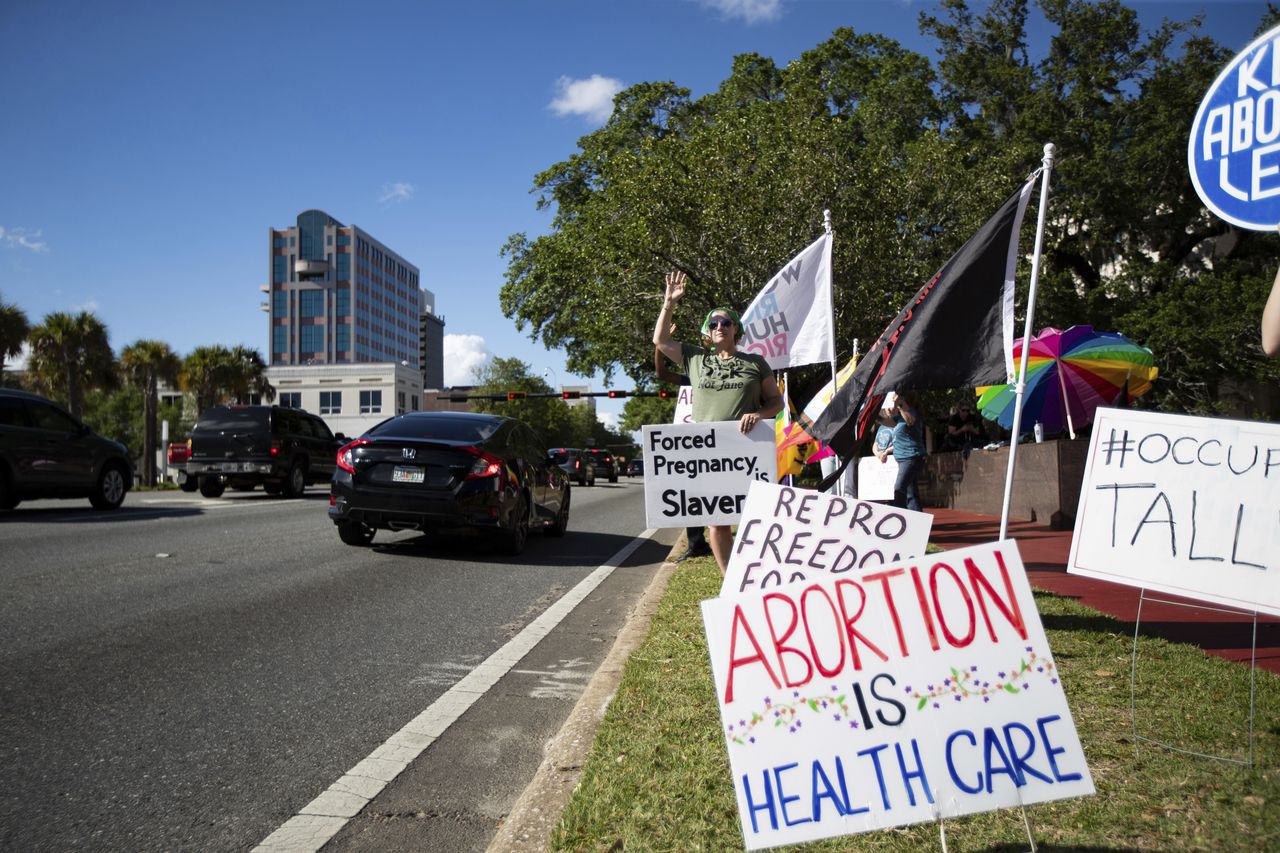Florida could be the next state with abortion on the ballot as court weighs initiative
The Florida Supreme Court on Wednesday heard opening arguments for a proposed amendment that would allow residents to determine whether abortion rights should be enshrined in the state constitution. Were the plaintiffs to win, Florida would become the latest state to allow reproductive rights on its ballot, with the amendment expected to be voted on in the November election.
The effort is being led by Floridians Protecting Freedom (FPF), an alliance of organizations including ACLU of Florida, Florida Rising, Women’s Voices of Southwest Florida, Florida Women’s Freedom Coalition, SEIU 1199 Florida and Planned Parenthood. It is one of at least 10 pushes to make abortion a voting issue on state ballots and is expected to increase Democratic voter turnout in the presidential election.
The alliance, in just eight months, collected more than 1 million signatures to place the ballot measure — upwards of 300,000 more than the requirement. But Florida conservatives like Attorney General Ashley Moody and groups like Florida Voters Against Extremism have questioned the proposed amendment’s language, calling it “misleading” and asking the state Supreme Court to kill the initiative.
“The message is clear. Floridians, from all 67 counties, want to see this amendment on the ballot,” said Yes on 4 Campaign Director Lauren Brenzel in a statement. “We look forward to the Court upholding Floridians’ constitutional right to vote on this amendment, so this November, Floridians will have the chance to restore their freedom to once again control their own bodies, their own health care and their own futures.”
The measure would prevent restrictions on abortion healthcare before fetal viability and include provisions to protect a person’s health after the 24 weeks. The court has until April 1 to decide on the measure’s proposed language. If it’s passed, at least 60 percent of voters would need to support the amendment to eliminate the state’s current 15-week ban, which took effect in July 2022 — just weeks after the Dobbs decision.
Opponents like Moody have said the measure’s language attempts to “hoodwink” voters who might have different opinions on the definition of fetal viability, which is generally accepted to be 24 weeks. During the court hearing, judges said some of the proposed amendmeant’s language was too broad, and others suggested that the consequences of passing the measure were not clear.
“A plain reading of the amendment language shows that it pertains to only one subject and the summary is clear,” said Attorney Courtney Brewer, who argued on Wednesday for the Yes on 4 campaign. “This amendment clearly meets the criteria to be placed on the ballot before voters.”
Conservative states like Kansas, Kentucky and Ohio have solidified abortion and reproductive rights, with Florida expected to follow, according to FPF.
At least 150,000 of the validated signatures collected by FPF were from registered Republican voters, indicating that reproductive rights are a bipartisan issue.
